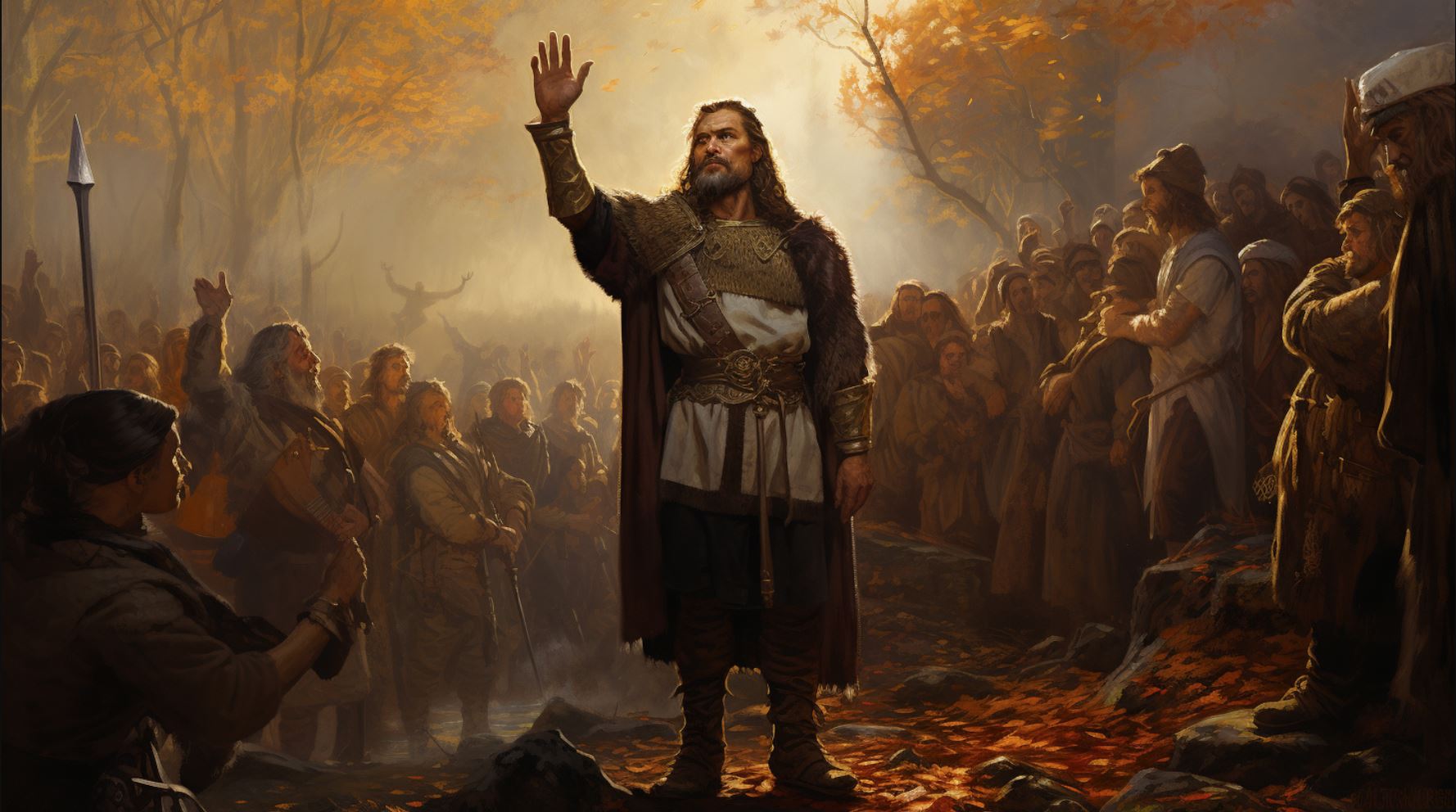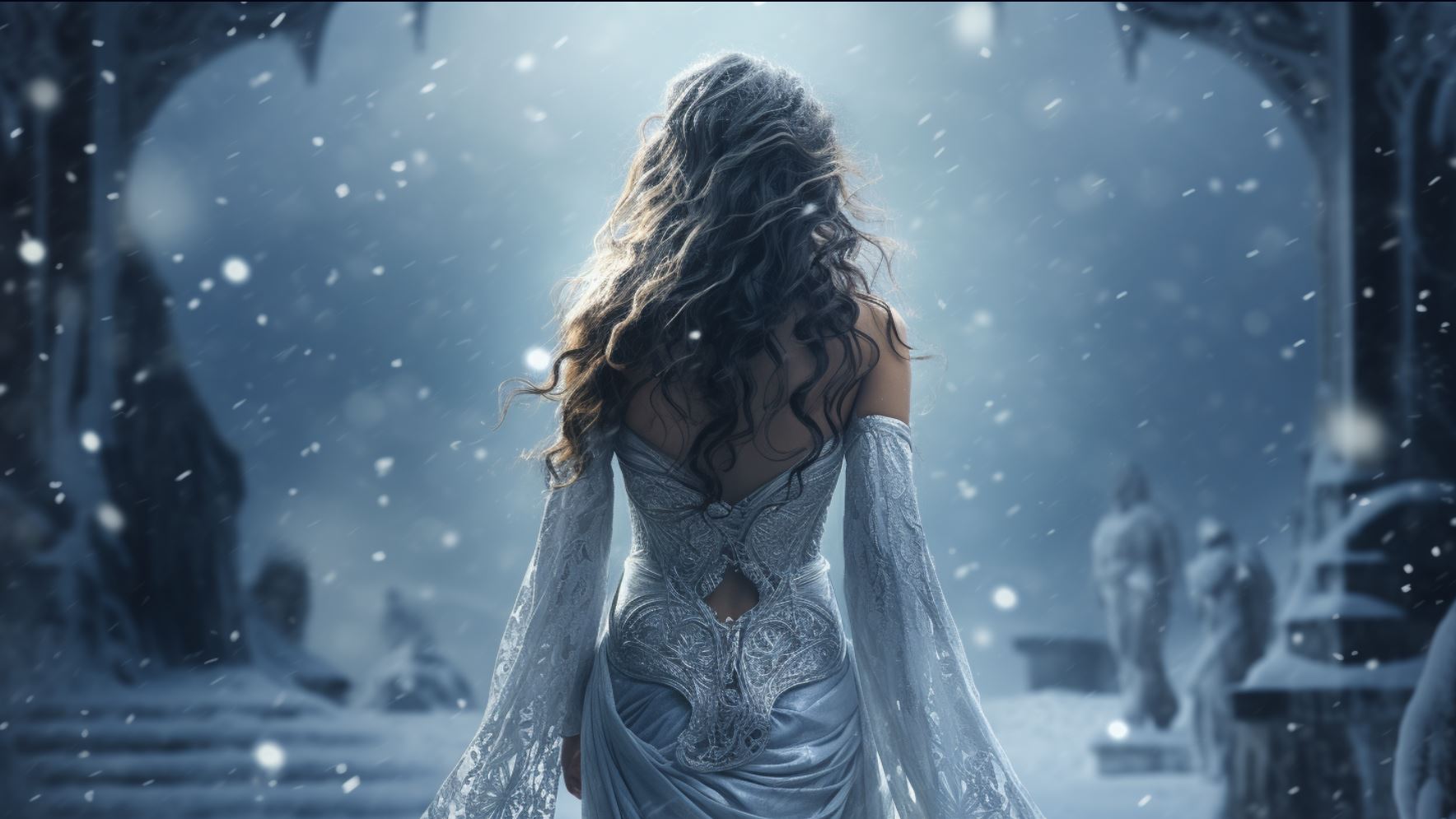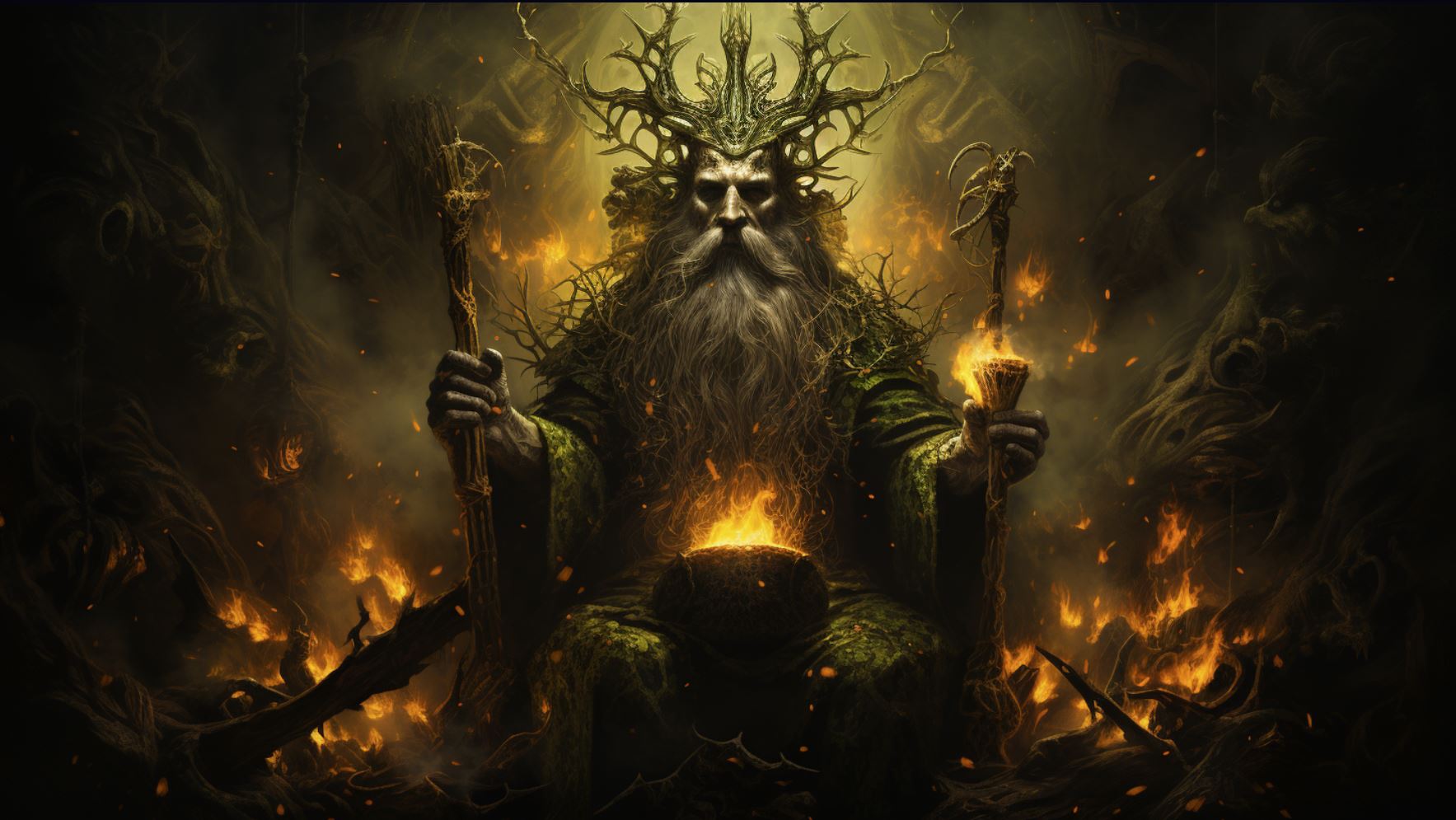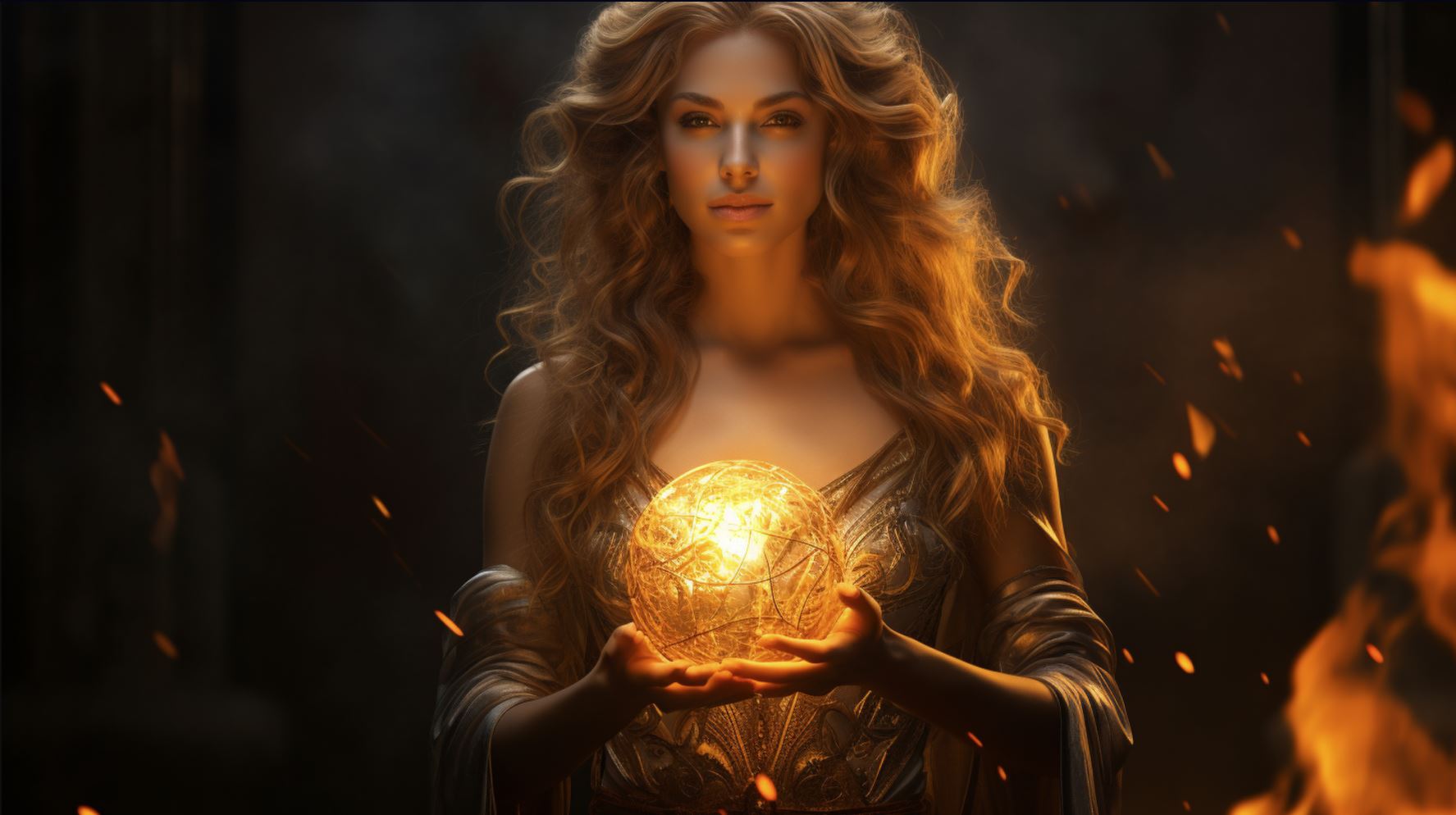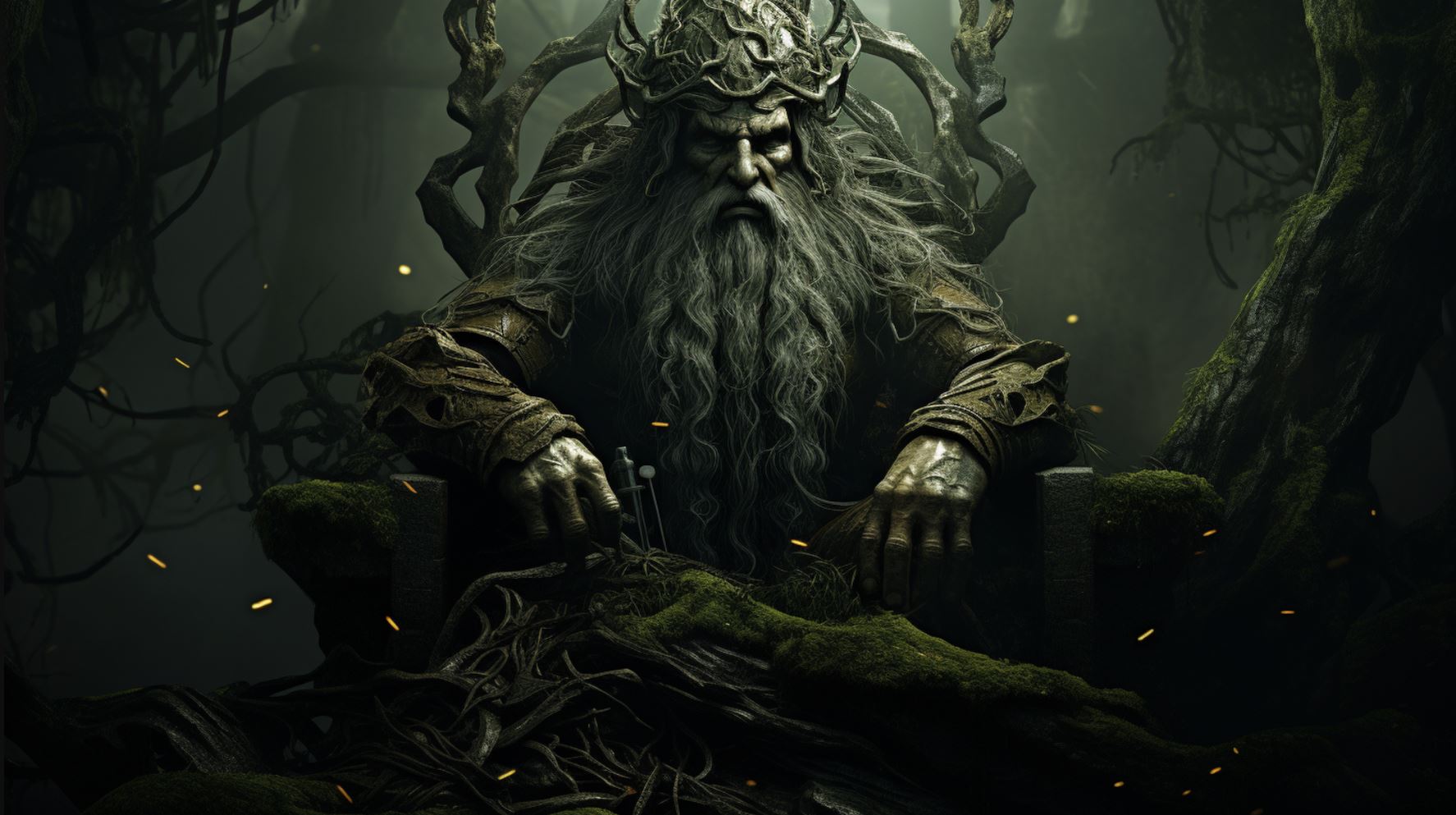Bres Celtic God: Unveiling the Mythology and Legend
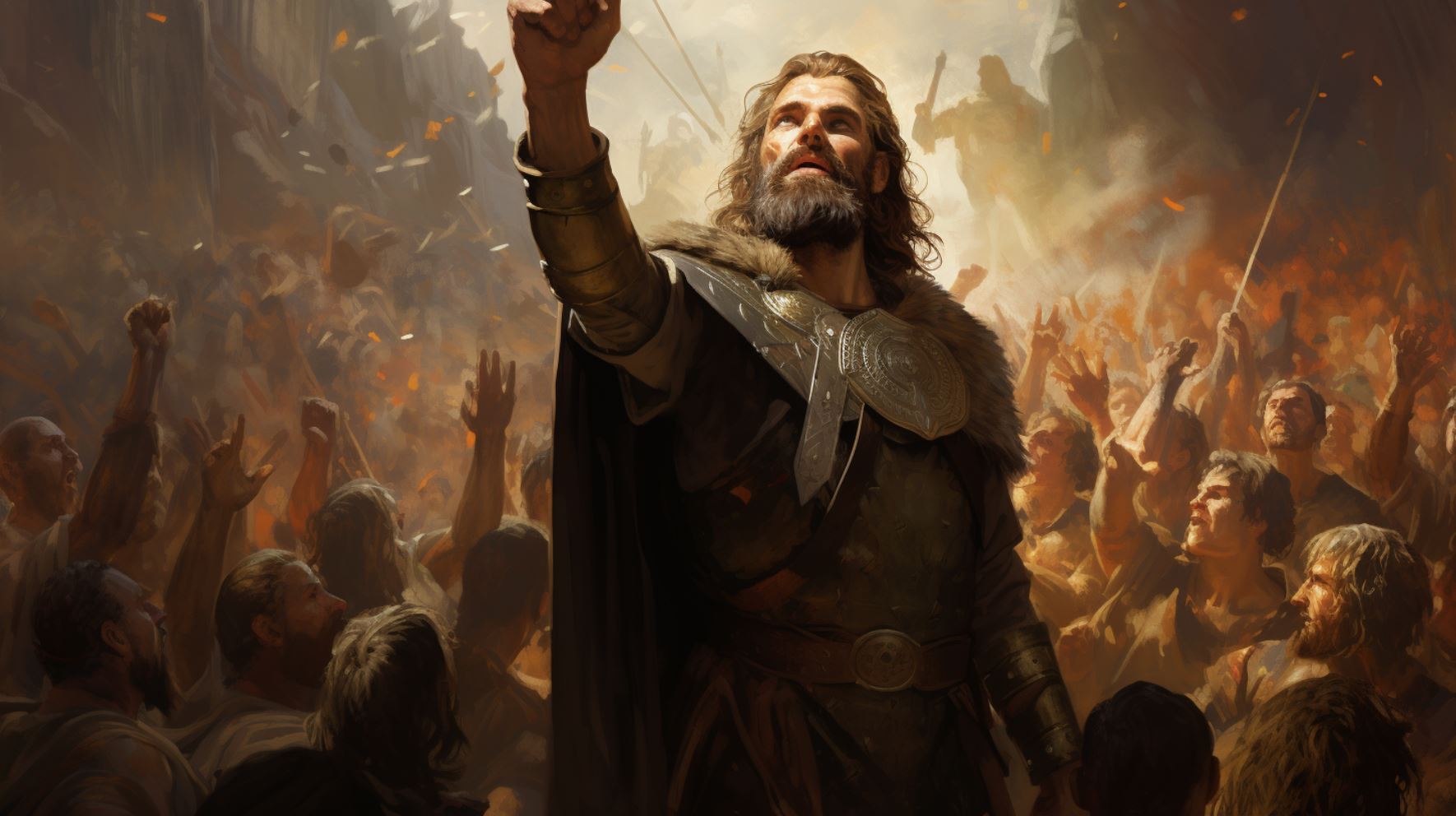
Bres Celtic God, a prominent figure in Celtic mythology, holds a significant role in the ancient tales. Known as the beautiful son of a Fomoire king and a goddess, Bres was chosen to rule but faced challenges due to his shortcomings as a generous and noble leader.
Ultimately defeated by his enemies, Bres sought revenge against those who took his place. This article explores the legend of Bres Celtic God, his significance in Celtic culture, and his enduring presence in contemporary literature, art, and merchandising.
The Legend of Bres Celtic God
Bres: A Brief Introduction
The legend of Bres Celtic God is a captivating tale intertwined with the rich mythology of the Celts. Bres, believed to be the beautiful offspring of a Fomoire king and a goddess, holds a significant place in Celtic folklore.
This section provides a concise introduction to Bres, setting the stage for a deeper exploration of his mythical role.
Bres’ Role in Celtic Mythology
In the tapestry of Celtic mythology, Bres takes center stage as a pivotal character. His lineage and background shape his identity and actions within the pantheon of deities. In this section, we delve into the various accounts that chronicle Bres’ exploits, shedding light on his significance in Celtic lore.
The Mythological Background of Bres
To understand the enigmatic figure of Bres Celtic God, it is essential to grasp the mythological context that surrounds him. This section uncovers the intricate mythology and beliefs that lay the foundation for Bres’ existence, providing insight into the larger tapestry of Celtic cosmology.
Bres and the Tuatha Dé Danann
The history of Bres Celtic God is intricately intertwined with the legendary Tuatha Dé Danann, a powerful race of deities in Celtic mythology. This section delves into the heritage of Bres, his ascendancy to the throne, and the eventual downfall that brought an end to his reign.
The Heritage of Bres
Born as the son of a Fomoire king and a goddess, Bres possessed a unique heritage that set him apart from the rest. His lineage from both divine and mortal realms bestowed upon him a captivating beauty that surpassed all expectations.
Bres’ Ascension to the Throne
Despite lacking essential qualities of generosity and true leadership, Bres was chosen to govern in place of Nuada, unleashing a tumultuous period in the history of the Tuatha Dé Danann.
His rise to power marked a turning point as he attempted to establish control over the divine realm, wielding both his charm and authority.
The Downfall of Bres
However, Bres’ reign was short-lived, largely due to his inability to meet the high standards set by his subjects. The dissatisfaction eventually led to his overthrow by Nuada, the original god who had been deprived of his kingship.
This marked a significant shift in the power dynamics among the Tuatha Dé Danann.
In summary, the section ‘Bres and the Tuatha Dé Danann’ explores the heritage of Bres and his rise and fall as a ruler within Celtic mythology.
It highlights the intricate relationships and power struggles within the divine realm, shedding light on the significant role Bres played in shaping the mythological narrative.
Bres vs. Nuada: The Battle for Kingship
The clash between Bres and Nuada marked a pivotal moment in Celtic mythology, as they both vied for power and leadership.
This section delves into the struggles faced by Nuada in his pursuit of kingship, the failure of Bres’ reign, and the ultimate conflict between the two contenders.
Nuada’s Struggle for Power
Nuada, originally a revered deity, faced numerous challenges on his path to becoming a king.
His loss of a hand in battle made him ineligible to rule, until the intervention of the skilled physician Dian Cecht. Receiving a functioning silver arm, Nuada regained his place among the Tuatha Dé Danann, determined to reclaim his position as the rightful king.
Bres’ Failed Reign
When Bres assumed the throne, he embodied the beauty of the Fomoire lineage but lacked the wisdom and generosity necessary for effective rulership. His oppressive rule and failure to act in the best interests of his subjects quickly led to discontent and resistance among the Tuatha Dé Danann.
Bres’ reign was marked by turmoil and dissatisfaction.
The Conflict between Bres and Nuada
The battle for kingship reached its climax when Nuada, fueled by his desire to reclaim his rightful place, challenged Bres in a fierce confrontation. The clash represented more than just personal aspirations; it embodied opposing forces within Celtic mythology itself.
Nuada’s skill and determination prevailed, successfully removing Bres from power and restoring harmony among the Tuatha Dé Danann.
The Symbolism and Significance of Bres
Exploring the character of Bres Celtic God reveals profound symbolism and significance within Celtic culture. Bres embodies the concept of beauty, not only in physical appearance but also in the essence of Celtic art, music, and spirituality.
Bres and Beauty in Celtic Culture
In Celtic tradition, beauty was highly regarded and closely associated with divinity. Bres, known for his extraordinary physical features, symbolizes the aesthetic ideals cherished by the ancient Celts. His captivating presence mirrors the allure and enchantment found in the natural world, showcasing the Celtic admiration for the harmonious interplay between humanity and nature.
The intricate artwork and ornate jewelry of the Celts, adorned with motifs depicting Bres and other mythical figures, further emphasize the importance of beauty in Celtic culture. These intricate designs reflect the Celtic belief in the transcendent power of beauty to inspire and elevate the human spirit.
Bres as a Lesson in Leadership
Bres Celtic God’s reign serves as a cautionary tale about the qualities required for effective leadership. Initially chosen to rule, Bres’s lack of generosity and genuine leadership qualities led to his downfall.
His failed reign highlights the necessity for leaders to possess not only physical beauty but also wisdom, generosity, and a true understanding of their subjects’ needs.
Celtic society revered leaders who displayed a deep connection with their people, governed with fairness, and prioritized the common good above personal gain.
Bres’s failed reign reminds us of the potential consequences when leaders prioritize their own desires over the well-being and prosperity of the community they serve.
Bres’ Legacy in Irish Mythology
In Irish mythology, Bres’s story continues to resonate, exemplifying the timeless themes of power, downfall, and eventual redemption. His tale serves as a reminder of the cyclical nature of life and the inevitable consequences of one’s actions.
Furthermore, Bres’s legacy is intertwined with the mythological landscape of Ireland, influencing subsequent tales and shaping the understanding of Celtic deity. His story adds layers of complexity to the mythology, encouraging exploration of the intricate connections between gods, heroes, and the mortal realm.
Conclusion:
The symbolism and significance of Bres Celtic God within Celtic culture are profound. As a symbol of beauty and a cautionary tale of leadership, Bres’s story invites us to delve deeper into the rich tapestry of Celtic mythology.
His lasting legacy in Irish folklore perpetuates a fascination that continues to captivate and inspire.
Unraveling the Mysteries of Bres Celtic God
Exploring Bres’ Origins
Understanding the origins of Bres Celtic God is a journey into the depths of Celtic mythology. While the exact details of his birth are shrouded in mystery, it is believed that he was the son of a powerful Fomoire king and a goddess.
This unique lineage imbued him with both divine and mortal qualities, shaping his destiny as a significant figure in Celtic folklore.
Bres’ Relationships and Family Connections
Bres Celtic God’s intricate web of relationships adds further complexity to his character. In various myths, he is depicted as having connections to other deities, including his mother, the goddess, and his father, the Fomoire king.
Additionally, his alliances with different factions within the Celtic pantheon shed light on his role as a political figure and the dynamics of power in ancient Celtic society.
Family Ties
- Bres’ maternal lineage: The goddess and her influence on his upbringing.
- Bres’ paternal lineage: The Fomoire king and their association with darkness and chaos.
- Interactions with siblings and other family members: Exploring the relationships that shaped Bres’ identity.
Unanswered Questions and Speculations about Bres
Despite extensive research and study, certain aspects of Bres Celtic God’s story remain elusive, leaving room for speculation and interpretation.
Scholars and enthusiasts alike ponder over unresolved questions surrounding his motives, character arc, and ultimate fate. These unanswered mysteries continue to fuel discussions and inspire new perspectives on the enigmatic figure of Bres.
Speculations and Theories
- The nature of Bres’ reign: Was his lack of generosity a product of his upbringing or inherent in his personality?
- Bres’ motivations: Did he truly seek revenge, or were there deeper reasons driving his actions?
- The aftermath of Bres’ defeat: What became of him after his ousting from power?
As researchers delve deeper into the world of Celtic mythology, the exploration of Bres Celtic God’s origins, relationships, and unanswered questions offers valuable insights into the rich tapestry of this captivating mythos.
Bres Celtic God in Contemporary Culture
Bres Celtic God continues to captivate and inspire artists, writers, and enthusiasts in modern times. Let’s explore the various ways Bres is depicted and celebrated in literature, art, and popular culture.
Bres in Literature and Art
Bres’ intriguing persona and mythical background have found their way into numerous literary works. Renowned authors have crafted compelling stories featuring Bres Celtic God as a central character, often delving into his complex nature and role within the Celtic pantheon.
In art, Bres has become a popular subject for both traditional and contemporary artists. His striking appearance and connection to Celtic mythology provide a rich source of inspiration for visual interpretations.
Paintings, sculptures, and illustrations beautifully depict Bres, capturing his divine essence and enigmatic allure.
The Influence of Bres in Modern Celtic Mythology
Bres Celtic God’s influence extends beyond his ancient origins, as he continues to shape modern interpretations of Celtic mythology. Contemporary scholars and enthusiasts explore Bres’ significance within the broader context of Celtic folklore, shedding new light on his role and symbolism.
With ongoing research and reinterpretations, Bres’ presence in modern Celtic mythological narratives helps preserve and adapt the rich folklore for new generations. His character serves as a connection between the ancient world and contemporary storytelling, bridging the gap between past and present.
Bres Merchandise and Popularity
Bres Celtic God has gained a dedicated following, leading to the production of a wide range of merchandise catering to fans’ interests. From clothing and accessories to collectible items and artwork, Bres-themed products allow enthusiasts to display their admiration for this captivating figure.
Online marketplaces and specialty stores offer an array of Bres-related merchandise, providing fans with opportunities to own unique and meaningful pieces inspired by Celtic mythology. The popularity of Bres as a cultural icon further reinforces the enduring fascination and appeal of his character.
.

